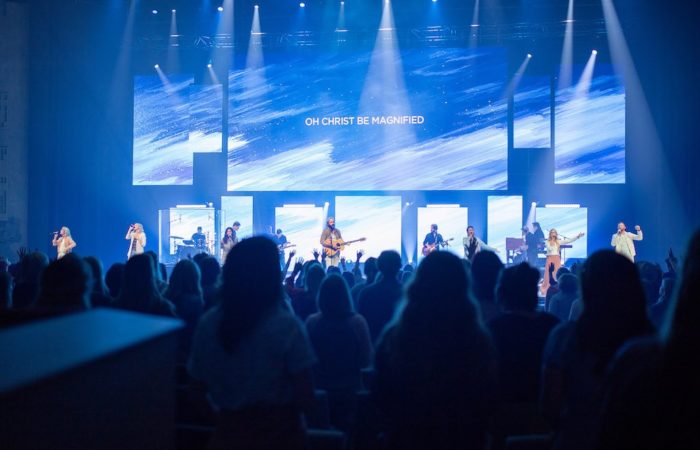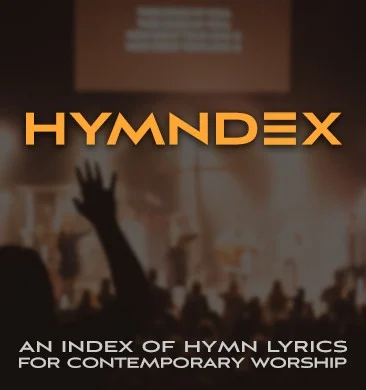Keith Getty gives practical advice on strengthening our congregational singing.
My wife, Kristyn, and I recently returned from a tour where we had the privilege of sharing our music in cities across North America. As we do on our tours, we partnered with most of our concert sponsors to host a lunch and time of discussion with local pastors, worship leaders, and other church musicians.
In each of those leadership events, I posed the question, “What are the things you ask yourself on Monday morning, in reviewing Sunday’s services?” Generally, the responses centered around production values, stylistic issues, people management, pleasing the pastor, or finishing the service on time. I do not recall that any one asked, “How did the congregation sing?”
It seems curious that in a generation that has produced innumerable conferences, articles, blogs, and even university degree programs on “worship,” the topic of congregational singing hasn’t been raised more often. But even if we had been discussing congregational participation, would we know what goal we’re aiming to hit each week?
I do not pretend to be qualified to write a theological treatise on this particular subject. Congregational singing is a holy act, and as I organize my thoughts, I hear my old pastor, Alistair Begg, reminding me that in our song worship, we have to be spiritually alive (dead people don’t sing), spiritually assisted (through the enabling of the Holy Spirit), and spiritually active (committed to daily walking with the Lord).
I offer here some practical advice on strengthening our congregational singing, drawn from both our experience as musicians and also what we have seen and learned in our travels.
1. Begin with the pastor.
Look at any congregation not engaged in worship through singing and the most consistent correlation is a senior pastor equally as disengaged. Ultimately the buck stops with him in congregational worship.
Every pastor must be intimately involved in the language being placed in the congregation’s mouth, for that singing ultimately affects how they think, how they feel, how they pray, and how they live. The congregation should be treated as those who have been invited to a feast at the table of the King; don’t hand them junk food! C. S. Lewis believed singing completes our faith, explaining in his book Reflections on the Psalms, “I think we delight to praise what we enjoy because the praise not merely expresses but completes the enjoyment; it is its appointed consummation.” This is why I believe many of our pastoral heroes such as Martin Luther, Charles Spurgeon, J.C. Ryle, and Philip Schaaf produced hymn books in addition to preaching and teaching. Other leaders such as Horatius Bonar, Richard Baxter, and John Calvin wrote hymns themselves.
Pastors not only have a duty to be involved in preparing for the time of congregational singing, they also have a responsibility to personally model and demonstrate the importance of it. We need pastors who constantly delight in their congregation’s singing and the musicians who serve them and who also joyfully and authentically participate themselves.
Pastors, take up your duty in this act of worship called congregational singing. Worship leaders, pray for your pastor faithfully and do your part to develop a thriving relationship with him. The most influential worship leaders in history have almost always had close (though often tense) relationships with their pastors.
2. Sing great songs.
If congregational singing is a holy act, and if we are what we sing, then we can’t be lazy in selecting songs. We must sing great songs—songs that artfully exult Christ with deeply meaningful lyrics and melodies we can’t wait to sing. Better to have a small repertoire of great songs (that you will sing well) than a catalog full of songs recycled for sentimental reasons or chased after because they are the “latest” thing.
Writing or selecting great songs is not an exercise in lyrical propaganda or marketing. It is not merely laying scriptural truth alongside any melody. It is an art form that arrests our emotions and intellect in mysterious ways. Just as a master chef selects ingredients that are at the same time nutritious, aromatic, and flavorful, the selection of songs for congregational singing must excite at a number of levels.
Great songs have stood the test of time. They have been passed on to us from our fathers, and we should pass them along to our children. Assemble any Christian group, and practically everyone can join you in singing “Amazing Grace” confidently and passionately. We’re drawn to sing great music, much like we’re drawn to stand in awe of a beautiful painting.
There are great new songs—they breathe fresh air into our singing and help connect age-old truth with modern sounds. These are appropriate, too, though harder to find.
Recently I invited two unbelieving friends to a Christian event. The artists on stage played songs with interesting lyrics but awful melodies. I asked my friends what they thought about the concert. “These people obviously don’t take their subject matter very seriously,” one friend replied. Now, I know for a fact this is not true. But art ultimately expresses life, and low-quality songs do not reflect spirited, serious believers.





